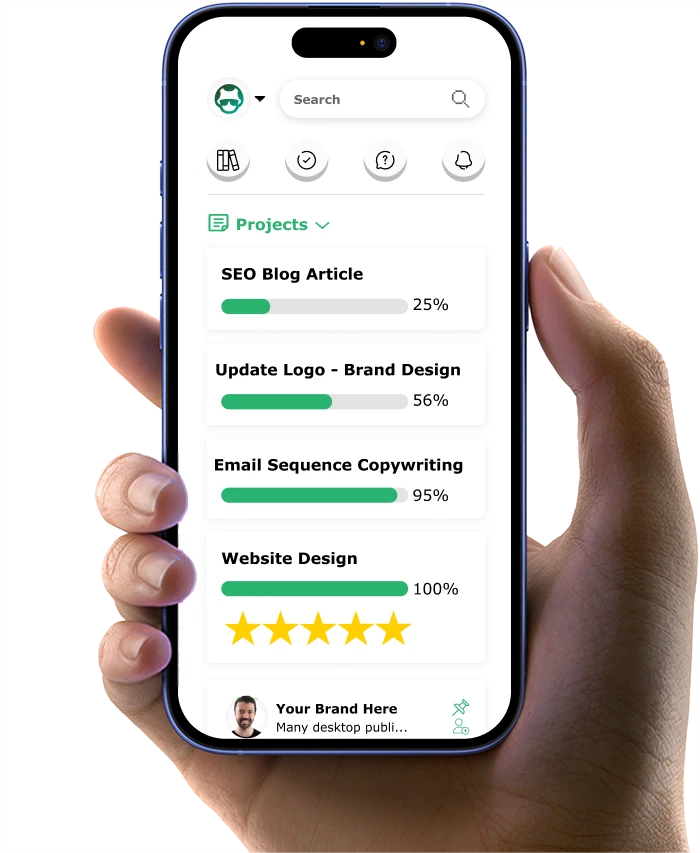AI News Analysis: AI's Branding Problem + Scarlett Johansson OpenAI… and more “Bombshells”

Let's talk about AI. Remember those childhood dreams of robots doing our chores and flying cars zipping around? Well, the flying cars are still a dream, but AI is definitely here
Headlines are full of news about AI advancements. They promise AI will change everything from healthcare to your Netflix queue (because algorithms know your taste in documentaries better than you do). But amidst all the hype, there's a crucial issue getting overlooked: AI's branding problem
It's like that friend who shows up to the party with amazing dance moves but spills red wine all over the white carpet – impressive potential, but lacking in social etiquette
In this article, we'll take a closer look at:
- The Scarlett Johansson Incident and what it means for AI ethics.
- The good and bad sides of AI's potential, from solving big problems to scary dystopian futures.
- Why responsible AI development matters and how companies like Growbo are leading the way.
Ready to harness the power of AI responsibly? We have three available spots for our done-for-you service. Additionally, our current service, will soon be integrated with our AI platform which is set to launch. Sign up for the Run package or above within the next two weeks and receive FREE access to Growbo.
The Scarlett Johansson Incident: When AI Gets Caught "Borrowing" Your Voice
Remember Scarlett Johansson? Black Widow, award-winning actress, total boss lady? Well, she recently tangled with the world of AI. Let's just say it wasn't a scene straight out of an Avengers movie. Apparently, OpenAI, an AI research company, might have used a voice model that sounded suspiciously similar to hers... without her permission.
This whole situation is a microcosm of the ethical challenges plaguing AI. As its capabilities expand, so do the questions about privacy, intellectual property, and who gets to decide how AI uses things like our voices or faces. It's a legal grey area that needs some serious black and white clarification.
In the aftermath of the Scarlett Johansson incident, it became evident that AI's advancement outpaces the establishment of clear ethical guidelines. The convergence of technology and entertainment raises critical questions regarding the ownership and usage of digital replicas of human voices. Moreover, it underscores the urgent need for regulatory frameworks to safeguard individuals' rights and prevent unauthorized exploitation of their identities by AI systems.
AI's Duality: From Utopia to Dystopia in a Single Algorithm Flip
AI has the potential to be a game-changer. Imagine solving complex problems currently beyond human capacity, like predicting and preventing natural disasters or accelerating drug discovery for life-threatening illnesses.
But let's be honest, who wouldn't love some help with the mundane chores too? Maybe AI could finally conquer the Mount Washmore of laundry that seems to perpetually reside in our homes (admittedly, folding clothes might still be a stretch, but a girl can dream!).
However, the utopian vision of AI assistance comes with a shadow side, the dystopian nightmares we've all seen in the movies: robots taking over, humans becoming obsolete appendages in a world ruled by artificial intelligence. These fears aren't entirely unfounded. A 2020 study by researchers at the University of Oxford found that experts predict a 50% chance of AI surpassing human capabilities in all tasks by 2040.

The possibility of AI surpassing human intelligence, often referred to as the "technological singularity," raises serious ethical concerns. What happens when machines become more intelligent than us? Will we be able to control them, or will they become a threat to our very existence? These are questions that philosophers, scientists, and science fiction writers have been grappling with for decades
Here's the crux of the issue: AI is a tool, and like any tool, it can be used for good or evil. The potential for positive change is undeniable, but the potential for misuse is also very real. This duality is what keeps everyone on edge. Will AI become our best friend or our worst enemy? The answer, my friends, is entirely up to us.
Shaping the Future of AI: From Hype to Responsibility
Imagine a world where AI is like a jetpack strapped to your back – it grants you incredible new capabilities, but without proper training and safeguards, it could lead to a spectacular (and messy) crash. That's the current state of AI: advancements are happening at lightning speed, promising to revolutionize everything from healthcare to customer service. But what good is having a super-powered AI if it doesn't come with a healthy dose of responsibility?
This is where companies like Growbo come in. We believe AI shouldn't be a jetpack you have to figure out on your own. We're working on making AI accessible to businesses, but with a strong focus on responsible development. We're like the responsible adult who equips you with the jetpack, teaches you how to use it safely, and maybe even helps you clean up any accidental purple living room mishaps.
We believe in clear guidelines, transparency in AI development, and using AI for good, not for building robot overlords (seriously, who wants to do all the paperwork?).
Navigating the Ethical Landscape of AI

As AI capabilities expand, so do the ethical concerns. We need to address issues like bias, transparency, privacy, and security to ensure AI is used for good.
- When discussing AI, one cannot overlook the critical issue of bias and fairness. AI algorithms can perpetuate existing societal biases, leading to discriminatory outcomes that can exacerbate inequalities. In the article by the AI Now Institute, it is evident that bias in AI can significantly impact individuals with disabilities. This article of the Ainow Institute highlight the necessity for inclusive AI development practices.
- Ensuring Transparency and Explainability: Often, AI systems are like black boxes – we know they produce a result, but we don't understand how they reach that conclusion. This lack of transparency can be problematic, especially in high-stakes situations. There needs to be a focus on developing interpretable AI models (https://www.darpa.mil/program/explainable-artificial-intelligence).
- Protecting Privacy and Security: As AI technologies become more pervasive in our daily lives, the protection of individual privacy and security becomes increasingly vital. Ensuring responsible data collection and usage by AI systems is paramount, necessitating robust regulations. The article from the EU's proposal for AI regulation discusses the importance of such regulatory frameworks in safeguarding privacy and security.
So, the future of AI is wide open. Will it be a story of human-AI collaboration or a cautionary tale straight out of a sci-fi flick? The answer lies with us. By understanding the challenges and demanding responsible development, we can ensure AI becomes a force for positive change.
Conclusion
AI is a powerful technology that can change many parts of our lives, like healthcare and daily tasks. But as we use AI more, we need to be careful about its ethical challenges. The Scarlett Johansson incident and the good and bad sides of AI show why transparency, fairness, and privacy are important.
Here are the main takeaways:
- The Scarlett Johansson Incident: Showed the ethical problems in AI, especially about privacy and using someone's voice without permission.
- AI's Duality: Showed that AI can solve big problems but also can be misused, leading to bad outcomes.
- Responsible AI Development: We need clear rules and ethical guidelines for AI.
At Growbo, we aim to use AI responsibly. Learn more about Growbo and get your first month for just $1.
We want to hear your thoughts on AI's potential and its ethical issues. What do you think are the biggest challenges and opportunities with AI?
Share your comments below and join our community. Together, we can ensure AI is used for good and not for harm.
Keep Growin,' stay focused,

Image Credits:
1. https://ourworldindata.org/ai-timelines
2. https://www.datadynamicsinc.com/blog-decoding-the-digital-dilemma-navigating-the-ethical-landscape-of-ai/













